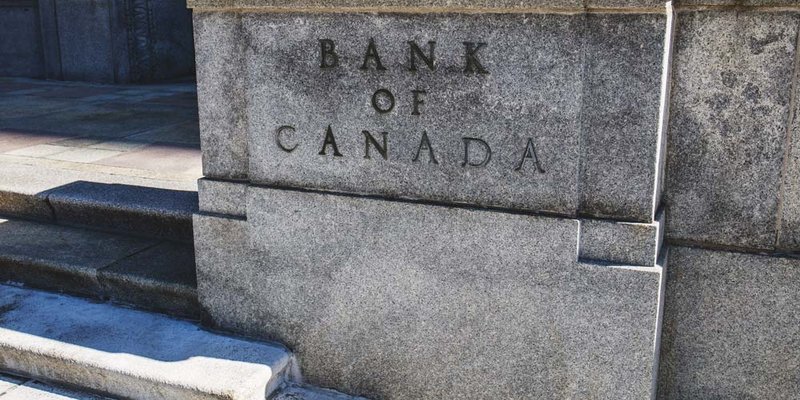
If you are not redirected within 30 seconds, please click here to continue.
Samedi: 10h – 16h HAE

If you are not redirected within 30 seconds, please click here to continue.
If you are not redirected within 30 seconds, please click here to continue.
Bank of Canada: Central Bank Leaves Rates Unchanged in Last Announcement for 2018

The Bank of Canada decided to keep the overnight benchmark rate at 1.75% for several reasons, leading to uncertainty as some forecasters now believe there may not be a hike in the upcoming January announcement.
In its last interest rate decision for 2018, the Bank of Canada left its overnight benchmark rate unchanged at 1.75%. This comes after the central bank raised rates three times in 2018. In a press statement released after, the Bank gave several reasons for holding rates steady at this time and hinted at what’s to come in 2019.
Lower oil prices
Since the last interest rate announcement when the Bank raised rates by 25 basis points, the price of oil has declined greatly. At the beginning of October, the price per barrel for WTI crude – one of the most closely watched oil prices – has fallen from $75 USD/barrel to less than $55 USD/barrel.
In the most recent Monetary Policy Report (MPR), the Bank said, “Oil prices have fallen sharply since the October MPR, reflecting a combination of geopolitical developments, uncertainty about global growth prospects, and expansion of U.S. shale oil production. Benchmarks for western Canadian oil – both heavy and, more recently, light – have been pulled down even further by transportation constraints and a buildup of inventories. In light of these developments and associated cutbacks in production, activity in Canada’s energy sector will likely be materially weaker than expected.”
Softer domestic data
In its October MPR, the Bank of Canada predicted Canada’s economy will grow by 2.3% in the fourth quarter. But now it does not seem to be as certain, claiming that business investment fell in the third quarter as a result of heightened trade uncertainty prior to the signing of USMCA (or CUSMA).
The BoC stated, “The Canadian economy as a whole grew in line with the Bank’s projection in the third quarter, although data suggest less momentum going into the fourth quarter.”
Economists are also expecting fourth-quarter GDP numbers will come in lower than expected. In a note sent to reporters after the announcement, BMO economist Benjamin Reitzes said Canadians should “expect a meaningful cut to the BoC’s Q4 growth call of 2.3% and Q1 to be introduced at a low level.”
Inflation and credit remains in focus
The Bank’s key mandate is to keep inflation in check, and as such, the Bank mentioned, “Inflation has been evolving as expected and the Bank’s core measures are all tracking 2 per cent, consistent with an economy that has been operating close to its capacity.”
Lower oil prices are expected to put downward pressure on inflation, but the Bank thinks there is still room in the economy for “non-inflationary” growth. That being said, the Bank said it will reassess all factors that may lead to solely economic growth without affecting inflation in its new projection for the January MPR.
The housing market seems to be stabilizing as well, following what the Bank called a “significant slowdown in recent quarters.” It said it will continue to watch how tighter mortgage rules, regional housing policy changes, and higher interest rates will affect the real estate market.
Forecast going into 2019
The Bank has said on multiple occasions that it wants to get rates back to neutral levees, which is closer to 3.5%. That would mean doubling the current overnight rate to achieve that goal. But forecasters are not as confident the Bank will raise rates in its January announcement anymore.
“Looking ahead to January, the BoC will likely need to be convinced to hike (rather than not to hike), so we’ll need to see a solid run of data and oil prices at a minimum hanging in there,” said Reitzes. “We’d put the odds of a January hike at 50/50 at best right now.”
The Bank also expressed its desire to get the policy interest rate rise into a neutral range, but stressed the importance of closely monitoring how higher rates could affect household consumption and global trade policy development. It also seems to be concerned with the persistence of the oil price shock, the evolution of business investment, and the economy’s capacity.
The next scheduled overnight rate target announcement is Jan. 9, 2019, and the Bank’s outlook on the economy and inflation, including risks to the projection, will be published in the MPR at the same time.
Get money-saving tips in your inbox.
Stay on top of personal finance tips from our money experts!










